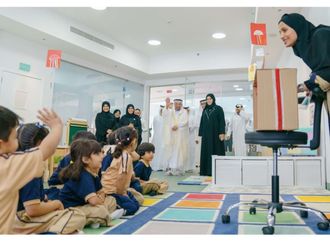Dubai: The second Arab Women Leadership forum concluded on Wednesday.
It focused on gender-equality laws and women-friendly work policies, along with the strategies used by men and women to negotiate for opportunities in the workplace.
The forum discussed issues such as inadequate maternity leave and the choice many women have been forced to make between taking care of their children or taking a pay cut.
"There is a perception among several Arab countries that leads employers to believe that a male employee needs to have a career, which is based on the concept of promotion and progression, while a female employee merely occupies a position within a company," said Dr Maha Al Muneef, Executive Director, Family Protection Programme, Saudi Arabia.
Key note speakers also pointed out that changing these perceptions signifies a crucial first step.
"There is a need for greater awareness to be generated through the education of both men and women, and through the use of key influencers such as the media," said Selma Aliye Kavaf, Minister for Women and Family Affairs, Turkey.
"Turkey is fully aware that supporting female participation in the workforce is an essential element to achieving sustainable growth and development in today's world."
Another main point of discussion during the two-day forum was the conflict of roles among both men and women, and how spouses balance work priorities.
More tension
"Women experience more tension than men because of multiple roles they have to fulfil, such as being a mother, wife and employee," said Dr Katty Marmenout, Assistant Professor of Management, Emlyon Business School, France.
"It is difficult for women to dissociate themselves from being an Emirati woman in the workplace, which makes [them] behave according to society's expectations. That is why they would prefer to work in the public sector because their role expectations are more aligned with each other."
Dr Marmenout further added that role expectations should be changed in the workplace as Emirati women can still act independently while still maintaining Islamic work ethics, in addition to the younger generations of men who are becoming more involved with their families.












